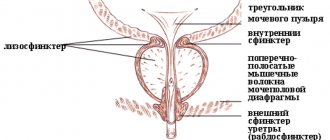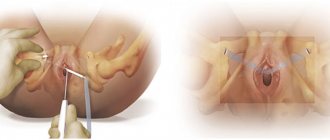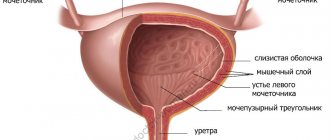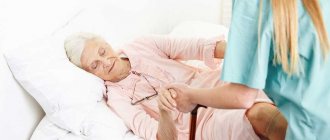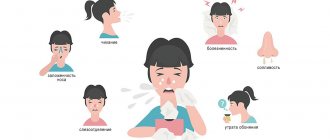Men who are faced with the problem of urinary incontinence often put off seeing a doctor until the incontinence becomes a source of constant discomfort and a reason for serious restrictions on daily activities. Although, if many people knew in advance how much modern absorbent products make life easier for a person with any degree of incontinence, they would not delay treatment until the problem becomes unbearable. Using absorbent hygiene products throughout the treatment process will allow you to safely visit the doctor, even if the clinic is far from home.
Urological problems, including urinary incontinence, cause a feeling of shame and embarrassment in men, often becoming a source of more serious psychological problems. There is a misconception that problems with urinary control occur only in children and the elderly. Therefore, it is difficult for young and mature men to admit that they have such a problem. They are embarrassed to discuss it with anyone, including a specialist. This leads to progression of incontinence and an increased risk of complications. However, in reality, male incontinence occurs at any age and has a wide range of possible causes that require the intervention of a medical specialist.
1. Urological problems:
• any form of prostatitis;
• benign prostate tumors (adenoma);
• malignant neoplasms of the prostate gland;
• recent operations on the genitourinary system;
• operations to remove the prostate;
• infectious lesions of the genitourinary system.
2. Diseases with dysfunction of the nervous system:
• dementia due to cerebral vascular damage;
• suffered acute circulatory disorders in the brain (stroke);
• some injuries to the brain or spinal cord;
• parkinsonism (Parkinson's disease).
3. Psychological and medicinal factors:
• prolonged severe stress;
• taking sedatives.
4. Condition of the muscular frame (due to old age, heavy physical activity, physical inactivity):
•Weakness of the muscles of the anterior abdominal wall;
•Weakness of the pelvic muscles and associated prolapse of internal organs.
Smoking, alcohol abuse, and drug use can aggravate incontinence.
It is better to begin treating any type of incontinence as early as possible, even if there is only a drip of periodic leakage of urine. If you constantly put off going to a specialist, you can get complications that will be much more difficult to treat. For example, when the cause of incontinence is a genitourinary infection, without timely treatment there is a high risk of it becoming chronic. And constant exposure to aggressive biological fluid (urine) on the skin can cause irritation, dermatitis and other complications.
A treatment plan for incontinence is drawn up by a doctor, depending on the cause and severity of the problem.
Drug therapy
1. Drugs based on alpha-blockers are used for incontinence due to prostate adenoma and chronic diseases of the genitourinary system. The active ingredient of the drug relaxes the smooth muscles of the sphincters of the urinary system, which helps normalize the outflow of urine and the functioning of the bladder. 2. Preparations based on 5-alpha reductase blockers. They suppress the activity of the hormone dihydrotestosterone, an excess of which can lead to an increase in the volume of prostate tissue. While taking the drug, the size of the prostate is normalized, and the symptoms of incontinence decrease or disappear. 3. Antidepressants and drugs to normalize the functioning of the nervous system. The purpose of these medications is to block nerve impulses that lead to spasm of the bladder walls and uncontrolled emptying.
The selection of all drugs and their correct combination can only be carried out by a specialist.
Surgical treatment
Surgical methods of treatment are resorted to in cases where other methods of therapy do not give the desired result. For example, when incontinence occurs as a result of severe diseases of the nervous system or damage to the sphincter during removal of the prostate. The surgeon can install artificial devices to help get rid of urine leakage. For example, retrourethral slings and sling systems, or artificial sphincter valves.
You always want to take all possible measures to speed up recovery and improve the effectiveness of treatment. When looking for additional methods to combat incontinence, you should not trust folk recipes: they may not only not help, but also cause harm. Strictly adhere to the recommendations of your doctor. As additional measures, the doctor may prescribe sedatives or restorative herbal remedies and give a list of recommendations for improving urinary control. Other additional measures helpful for incontinence:
Diagnostic methods
When urologists complain of drip urine, they first try to exclude an infectious factor. To do this, a smear from the urethra, urine, blood, and prostate juice are taken for analysis. If there are deviations in the urine analysis, a clarifying study is performed according to Nechiporenko.
The Nechiporenko analysis is used to detect infection if abnormalities were detected in a clinical urine test
An important stage of diagnosis is uroflowmetry. Based on the nature of the urine flow, the doctor will determine the presence of narrowing of the urethra. To clarify its location and nature, radiography, urethroscopy, ultrasound, and TRUS of the prostate are prescribed. An ultrasound or x-ray of the bladder is done if urolithiasis is suspected.
If everything is in order regarding urology, then the patient is referred to a neurologist. He will assess the quality of nerve conduction, check the reflex of the bulbourethral muscle and urethral sphincters. If necessary, he will prescribe an MRI or CT scan of the brain and lumbar spine.
Drinking schedule
Drawing up a personal drinking schedule will help you better control the process of urination. The amount of liquid you plan to take during the day is divided into several doses. After each intake of liquid, it is necessary to visit the toilet, even if you drank water at night. This way the bladder gets used to a certain rhythm of work, which makes it easier to control its emptying.
Problems with urinary control can make simple and habitual activities very difficult and even impossible. Using special personal hygiene products for incontinence will help you avoid these restrictions and calmly undergo examination and treatment. Urological pads and panty diapers will allow men to travel far from home and go to work without fear of not being able to get to the toilet on time. Diapers for adults provide a comfortable stay in bed for bedridden patients and significantly facilitate their care. The use of absorbent products can cause hesitation among men due to the stigma that easily arises around issues that people do not want to publicize. But the quality of the iD LIGHT and iD PANTS hygiene products can quickly convince you of how such products make life easier for people every day, regardless of the degree of incontinence.
For minor problems such as urine leakage in men, urological pads are suitable. Panty diapers provide the opportunity to continue to lead an active life, despite a more pronounced degree of urinary incontinence. These absorbent products are not visible under clothing, even if it is not loose jeans, but a strict business suit. The use of such absorbent products will allow a man not to give up his usual and favorite activities, responsible work or active recreation. For bedridden patients and people with severe mobility limitations, adult diapers and diapers are suitable for comfortable protection against the consequences of urinary incontinence. It is important to choose the right size depending on your waist circumference, and also to choose the optimal absorbency of the products, depending on the degree of incontinence.
Modern personal hygiene products can solve many of the problems that urinary incontinence creates in men. They allow you to do what you love while maintaining psychological comfort, rather than placing yourself in social isolation. Thanks to properly selected absorbent products, a man can enjoy freedom of movement, confident communication and an active life. The main thing is not to put off solving the problem and not to deny its existence, but to consult a doctor in time.
Causes of urine leakage in men after urination
The reasons for the release of urine after urination are weakness or lack of controllability of the muscles of the bladder neck and urethral sphincters . They either constantly remain not completely closed, or they tighten only some time after urination. In the latter case, urine stops leaking. This condition of the sphincters can be caused by anatomical (mechanical) or neurogenic disorders.
Diagram of the location of the urethral sphincters
Prostate pathologies
Both the internal and external urethral sphincters are closely adjacent to the prostate. Inflammation, adenoma or tumor of the prostate gland almost always affects their functionality. During an exacerbation of prostatitis, the tissues swell and the sensitivity of the receptors is impaired. As a result, the nervous system partially loses control over the compression of the sphincter; after urination (usually with pain), residual urine gradually flows out.
The adenoma can grow towards the rectum, bladder or urethra. As the subvesical tumor grows, it raises the neck of the bladder, disrupts its anatomical position, and can compress the sphincters, interfering with their normal closure. With adenoma, dribbling is usually constant, and the amount of urine leaking increases as the bladder fills.
Hypertrophy and inflammation of the seminal tubercle
The seminal tubercle (mound) is located in the prostatic part of the urethra (essentially, in the prostate). With hypertrophy (tissue growth) or inflammation (colliculitis), it moves into the urethra. As a result, its lumen narrows. When urinating, you have to strain, squeezing out urine. The larger the swelling of the tubercle, the more urine remains in the bladder. Its walls and neck lose their sensitivity from constant tension, and urine begins to involuntarily be released drop by drop. The symptom is especially pronounced during coughing, sneezing, and sudden changes in body position.
Location of the seminiferous tubercle
Obstructions in the urethra
Men sometimes complain that they leak urine when they sit down. This can only be avoided by “milking” the penis after urinating. Doctors associate this symptom with prostatitis, provoked by a sedentary lifestyle. Additional signs: periodic tingling in the penis, painful urination.
This is also possible with chronic inflammation of the urethra or the presence of obstacles in it in the form of scars, condylomas, tumors or anatomical “pockets” - diverticula. During urination, part of the urine is poured into the diverticulum or remains behind the tumor. When changing position it flows out.
Bladder diverticula
The cause of urine leakage may be urolithiasis. Sand or small pebbles periodically begin to move “out”, damaging the neck of the bladder, sphincters, and the urethra itself along the way. A pebble can get stuck in the urethra, cause inflammation, become overgrown with fibrous tissue, which will also create an obstacle to the normal outflow of urine. In such cases, blood is often released along with it.
Weak pelvic floor muscles
The pressure of urine during urination is maintained by the bulbocavernosus muscle (also known as the bulbocavernosus muscle). It contracts and compresses the urethra.
The problem of weakening and sagging of the pelvic muscles is typical for older men, but can also occur in relatively young men due to a sedentary lifestyle.
Neurogenic disorders
Urinary incontinence after urination can be caused by a violation of the reflex function of the same bulbocavernosus muscle or urethral sphincters. The muscles relax even before the process of urination is completed, which is why residual urine flows out during any provocation: rapid movement, change of position, physical activity.
The cause of neurogenic dysfunction of the pelvic muscles can be trauma, pathology of the brain or spinal cord. The centers of the nervous system that control urination are located in these organs. When they are damaged, the connection with the receptors of the urinary muscles is disrupted or lost, as a result of which the reflexes are lost.
Involuntary leakage of urine is a common consequence of prostate surgery, during which the neurovascular bundles are damaged. The problem can also arise after a nerve-sparing technique due to damage to the urethra by an instrument or catheter.
Reflex impairment also occurs against the background of Alzheimer's disease, parkinsonism, and multiple sclerosis.
Other reasons
The problem of leakage is significantly aggravated by excess weight and chronic constipation. Visceral fat puts pressure on the bladder, preventing it from contracting normally. In a sitting position, the pressure increases, and the likelihood of urine leakage increases. With constipation, the swollen rectum puts pressure on the prostate, causing the sphincters to widen.
Involuntary leakage of urine is a common consequence of radiation therapy for prostate or urethral cancer. Radiation exposure damages functional tissues; it will take time to restore them.
Immediate and long-term complications of radiation therapy (%)
Sphincter insufficiency and urine leakage after visiting the toilet can also be a consequence of alcoholism, drug addiction, and smoking. The reason is damage to nerve endings, dulling of reflexes at the level of the central nervous system.
